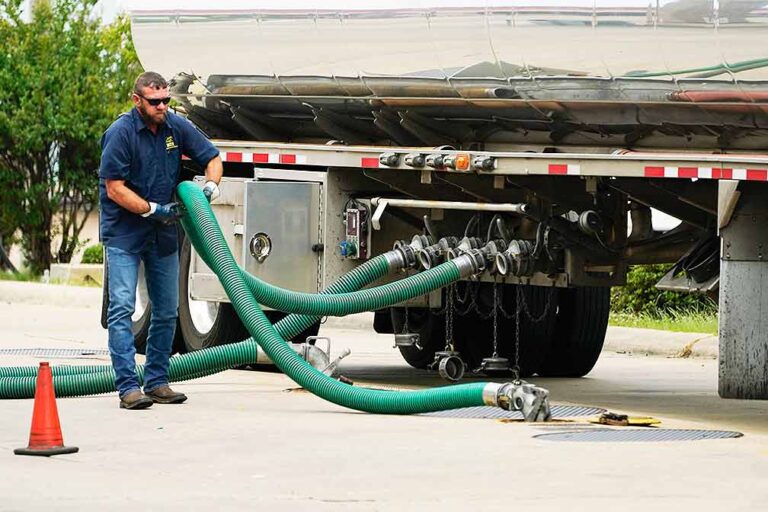LITTLE ROCK, Ark. — After a large U.S. fuel distributor warned in late October of diesel fuel supply constraints in some areas of the country, rumors began circulating that a nationwide shortage was imminent.
It’s not.
Although some regional shortages may occur, there is enough diesel on hand and on the way to avoid a national crisis.
In a news release issued on Monday, Oct. 31, Mansfield Energy reported that East Coast fuel markets are facing diesel supply issues due to market economics and tight inventories.
“Poor pipeline shipping economics and historically low diesel inventories are combining to cause shortages in various markets throughout the Southeast,” the news release stated. “These have been occurring sporadically, with areas like Tennessee seeing particularly acute challenges.”
Energy market experts have said that although the supply of diesel fuel is tight right now, it’s no cause for alarm. The U.S. isn’t about to run out of the vital fuel needed to run a majority of the big trucks that carry the goods the nation needs for survival.
Last week, headlines indicating that the U.S. is down to a 25-day supply of diesel swarmed the Internet.
The war in Ukraine, Hurricane Ian, a Pennsylvania refinery fire and COVID-19-related shutdowns have all contributed to the issue, industry insiders say.
“Inventories of diesel and gasoline are down below five-year averages, and if the entire world were to stop, we would have 25 days worth of diesel. But the world doesn’t stop. We’re not counting on it stopping,” Ed Hirs, a professor of energy economics at the University of Houston, told CBS MoneyWatch.
He likened the situation to a grocery store’s supply of milk at any given time.
“Your grocery store may have an inventory of three days of milk. That’s because they only have three days’ worth at any given point. But the cow keeps milking, the farmer keeps sending milk, the dairy keeps delivering,” Hirs told CBS.
Patrick De Haan of GasBuddy said: “What a lot of people are taking is that number means we’re going to run out in 25 days from whenever. That is not the case. That is a number that changes by fractions every week. It is representative of, if refineries across the country completely shut down, we would have 25 days of coverage.”
In Georgia, Gov. Brian P. Kemp last week signed two executive orders extending the temporary suspension of the state motor fuel and locomotive fuel tax, as well as the supply chain state of emergency. Other states have taken similar measures.
“As another holiday season and diesel (supply constraints loom), Georgians are still facing record high inflation, growing costs at the grocery store just before Thanksgiving and high prices at the pump as they prepare to travel to see family, all due to a complete failure of leadership in Washington,” Kemp said. “While we can’t fix everything politicians have broken, our responsible approach to reopening our economy while prioritizing both lives and livelihoods allows us to deliver needed relief by continuing to suspend our state’s gas tax. Alongside our partners in the legislature, we will continue working to ease the burden felt by Georgia’s families who deserve to have safe, warm, and prosperous holidays.”
Iowa’s governor has issued a proclamation allowing vehicles transporting motor fuels to be overweight (not exceeding 90,000 pounds gross weight) without a permit. The proclamation also temporarily suspends regulatory provisions of Iowa law pertaining to hours of service for crews and drivers hauling motor fuels.
In South Dakota, Gov. Kristi Noem has signed an executive order granting an hours of service waiver for certain liquid products being transported through South Dakota.
The 30-day order declares a state of emergency and exempts delivery of gasoline, diesel, jet fuel, propane, ethyl alcohol, natural gasoline, diesel exhaust fluid and anhydrous ammonia from federal motor carrier regulations regarding drivers’ hours of service. The waiver will address supply shortages being reported in the state by businesses and residents, in part due to the needs of harvest and preparation for winter.
Nebraska Gov. Pete Ricketts also issued an executive order to provide emergency relief for what his office dubbed “regional fuel shortages.”
The order temporarily allows drivers to work extended hours to haul gasoline or gasoline blends, diesel, fuel oil, ethanol, propane and biodiesel.
“By facilitating increased fuel transportation, the governor’s order will help reduce delays at petroleum product terminals in order to make fuels more readily available to consumers,” according to a news release.
The Trucker News Staff produces engaging content for not only TheTrucker.com, but also The Trucker Newspaper, which has been serving the trucking industry for more than 30 years. With a focus on drivers, the Trucker News Staff aims to provide relevant, objective content pertaining to the trucking segment of the transportation industry. The Trucker News Staff is based in Little Rock, Arkansas.








